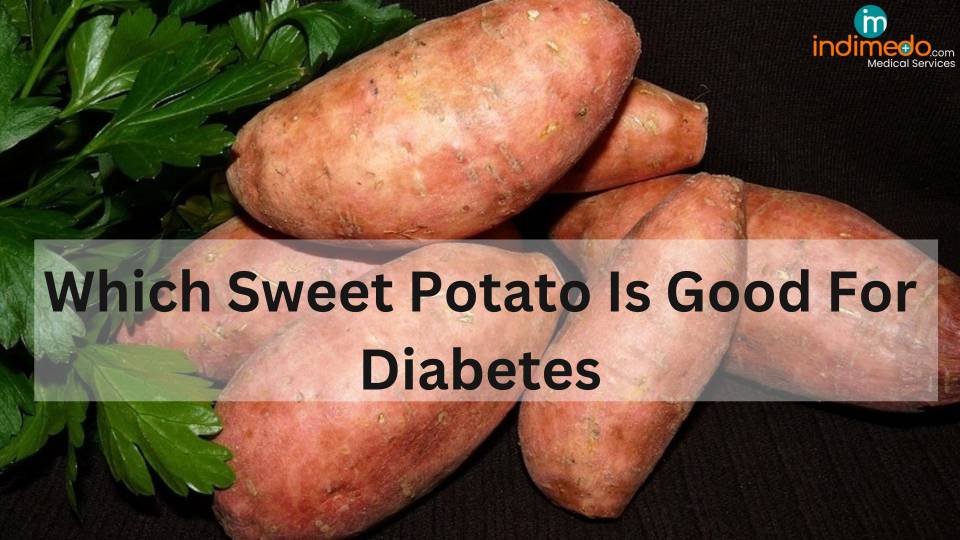Which Sweet Potato Is Good For Diabetes

Introduction
Best sweet potato fries & delicious, nutritious root vegetables with a sweet, earthy flavor. They are rich in minerals & such as the best vitamins A, C, potassium, & iron. It is recommended that people with diabetes choose the orange-fleshed purple sweet potato, as they are richer in carotenoids, vitamins, and minerals than the white-fleshed variety. These nutrients are essential for managing diabetes and can help reduce the risk of complications.
Which Sweet Potato Is Good For Diabetes
The Beauregard Sweet Potato is the best choice for people with diabetes as it has a low glycemic index and is high in dietary fiber. It is also a good source of essential vitamins and minerals.
which sweet potato Nutrients how much % Growing sweet potatoes contains essential nutrients, including vitamins A, and C, manganese, potassium, dietary fiber, Vitamin B6, and iron.
They Are Also A Good Source Of Protein And Complex Carbohydrates.
- Vitamin A: 438% of the daily recommended value
- Vitamin C: 36% of the daily recommended value
- Manganese: 27% of the daily recommended value
- Potassium: 12% of the daily recommended value
- Dietary Fiber: 7% of the daily recommended value
- Vitamin B6: 19% of the daily recommended value
- Iron: 6% of the daily recommended Value
- Protein: 4% of the daily recommended value
The Nutrition Facts Sweet Potatoes Are
- Calories: 86
- Water: 77%
- Protein: 1.6 grams
- Carbs: 20.1 grams
- Sugar: 4.2 grams
- Fiber: 3 grams
- Fat: 0.1 grams
Vitamins & Minerals Sweet Potato
Vitamins:
Vitamin A:
Growing sweet potatoes are a great source of vitamin A. One cup (200 grams) of cooked, mashed purple sweet potato provides 438% of the Reference Daily Intake (RDI) for vitamin A. Vitamin C Sweet potato is an excellent source of vitamin C. One medium-sized sweet potato contains 28 milligrams of vitamin C, which is about 47% of the recommended daily value. orange sweet potato also contains other essential vitamins and minerals like vitamin A, potassium, and manganese.
Vitamin B6:
Vitamin B6 is found in a wide variety of foods, including meats, legumes, nuts, seeds, whole grains, and vegetables, such as White sweet potato. Sweet potatoes are a particularly good source of vitamin B6, providing 0.5 milligrams of this vitamin in a half-cup cooked serving.
Vitamin D:
Carrots are a great source of Vitamin A. Sweet potatoes are a great source of vitamin D.
Vitamin E:
Vitamin E is found in a variety of foods, including sweet potatoes. orange sweet potatoes are an excellent source of vitamin E, providing 4.2 milligrams of nutrients per 100 grams. Vitamin E is a fat-soluble antioxidant that plays an important role in maintaining cell structure and protecting the body from oxidative damage.
Vitamin K:
Vitamin K is found in a variety of foods including leafy green vegetables, broccoli, cabbage, brussels sprouts, egg yolks, pork, beef, and fish. It is also found in some fruits and vegetables, such as avocados, kiwi, and White sweet potatoes.
Minerals:
Potassium:
The potassium content of a sweet potato can vary depending on the variety, but the average amount of potassium in a medium-sized sweet potato is 334 mg. Sweet potatoes are a great source of potassium, providing more than 10% of the daily recommended intake in just one serving. Additionally, purple sweet potatoes are a good source of other essential nutrients, including vitamin A, vitamin C, dietary fiber, manganese, and copper.
Calcium:
Calcium is an essential mineral and can be found in many foods, including growing sweet potatoes. One medium sweet potato contains approximately 18 mg of calcium or 2% of the recommended daily value. Other sources of calcium include dairy products, fortified cereals and juices, legumes, nuts, and leafy green vegetables.
Magnesium:
Magnesium-rich best sweet potato friesare a great source of dietary fiber, vitamins A and C, potassium, manganese, and magnesium. They are low in calories, making them a healthy addition to any diet. Magnesium is essential for maintaining healthy bones, as well as a healthy heart, brain, and immune system. Eating magnesium-rich sweet potatoes can help reduce stress and anxiety, and may even help lower blood pressure. Additionally, sweet potatoes are packed with antioxidants, which can help fight inflammation and protect against certain diseases.
Iron:
Iron sweet potatoes are a type of sweet potato that is rich in iron. Iron sweet potatoes are especially high in vitamin C, which helps the body absorb iron. They are also a great source of dietary fiber, potassium, and other nutrients. Iron growing sweet potatoes can be prepared in a variety of ways, including baking, boiling, mashing, and roasting.
Zinc:
Yes, zinc is found in sweet potatoes. White sweet potatoes are a good source of zinc, providing about 0.9 milligrams of zinc per half-cup serving.
Phosphorus:
The amount of phosphorus in a sweet potato varies depending on the variety. On average, a medium-sized sweet potato (100g) contains around 16mg of phosphorus.
Sodium:
Sodium content in sweet potato can vary depending on the variety and preparation. Generally, a medium sweet potato (118 grams) contains 66 milligrams of sodium.
Health Benefits Of Sweet Potatoes
1. High in Vitamin A:
Best sweet potato fries are a good source of beta-carotene, an antioxidant that is converted to Vitamin A in the body. Vitamin A is important for healthy vision, bone growth, reproduction, and cell division.
2. High in Fiber:
Sweet potatoes are rich in dietary fiber, which can help improve digestion, reduce constipation, and reduce the risk of developing certain types of cancer.
3. Low in Calories:
Sweet potatoes are low in calories compared to other starchy vegetables, making them a great food for healthy weight management.
4. Rich in Potassium:
Sweet potatoes are a great source of potassium, an electrolyte mineral that helps maintain fluid balance in the body and helps regulate blood pressure.
5. High in Antioxidants:
Sweet potatoes are a good source of antioxidants, including carotenoids and polyphenols, which may reduce inflammation and protect against certain diseases.
Improved Blood Sugar Regulation
Sweet potatoes are an excellent source of dietary fiber and complex carbohydrates, which can help to regulate blood sugar levels. They are also rich in vitamins and minerals, including vitamin A, vitamin C, potassium, and magnesium. When included in a balanced diet, White sweet potato can help to control blood sugar levels and reduce the risk of diabetes. They also contain resistant starch, which can help to slow down the digestion and absorption of carbohydrates, further helping to regulate blood sugar levels.
Improved Blood Sugar RegulationTips
- Choose sweet potatoes with darker skin colors, as they are higher in antioxidants.
- Avoid fried sweet potatoes, as they are higher in fat and calories.
- Add spices or herbs to sweet potatoes to add flavor without adding sugar.
- Eat sweet potatoes in smaller portions to help manage blood sugar levels.
- Include a source of lean protein and healthy fat with sweet potatoes to help slow digestion.
- Enjoy sweet potatoes with a side of non-starchy vegetables to help balance out blood sugar levels.
- Bake or steam sweet potatoes instead of boiling them, as this will help to retain more nutrients.
- Choose sweet potatoes that are not too ripe, as they may contain more sugar.
- Exercise regularly to help regulate blood sugar levels.
- Monitor your blood sugar regularly to ensure that it is in a healthy range.
Reduced Oxidative Damage And Cancer Risk
- Eat sweet potatoes with the skin on - The skin of sweet potatoes contain valuable nutrients and antioxidants that help reduce oxidative damage and cancer risk.
- Consume sweet potatoes in moderation - Eating too much of anything can increase your risk of cancer, so it’s important to consume sweet potatoes in moderation.
- Choose organic sweet potatoes - Organic sweet potatoes are grown without synthetic fertilizers or pesticides, which can reduce your exposure to potential carcinogens.
- Cook sweet potatoes properly - Overcooking sweet potatoes can cause them to lose their nutrient value and increase your risk of cancer.
- Add other antioxidant-rich foods - Combining best sweet potato fries with other antioxidant-rich foods like berries, spinach, and other vegetables can further reduce oxidative damage and cancer risk.
- Exercise regularly - Exercise helps reduce oxidative stress and can lower your risk of cancer.
- Avoid processed foods - Eating a diet high in processed foods can increase your risk of cancer, so it’s best to limit your intake of them.
- Stay hydrated - Staying hydrated helps flush toxins out of your body, which can reduce oxidative damage and cancer risk.





 Login with Facebook
Login with Facebook
 Login with Google
Login with Google